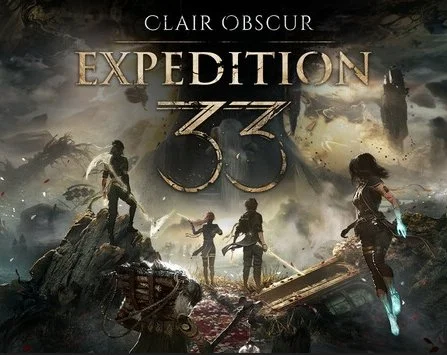Plural Panic: The Semiotic Peril of Peni Parker in the Digital Discourse Arena
This article somewhat tongue in cheek explores the linguistic and psychosocial implications of the pluralization of the character name “Peni Parker” from Marvel Rivals within digital discourse. It analyzes how seemingly innocent referential language can inadvertently trigger automated moderation systems and collide with social taboos. Through a lens informed by Foucauldian discourse theory, contemporary semiotics, and anxieties surrounding algorithmic governance, we interrogate the challenges that arise when common linguistic operations threaten to disrupt communication at the level of syntax, compelling users to engage in adaptive rhetorical strategies.
Naming and Its Digital Discontents
In the expansive and ever-evolving multiverse of Marvel media, the introduction of Peni Parker—a spirited, mech-piloting anime teen—has brought forth not only representational novelty but also an unexpected linguistic quandary. Specifically, the question arises: how does one pluralize the name "Peni"? And, more critically, how does one do so safely and effectively within the often-unforgiving environment of public digital communication platforms?
This seemingly trivial linguistic challenge, we argue, serves as a potent microcosm for a broader set of socio-linguistic and psychosocial anxieties prevalent in the digital age. This article posits that the character name “Peni” has become an emblematic case, highlighting the friction between natural language evolution, the rigid logic of automated content moderation, and the persistent influence of social taboos in online discourse. It underscores a significant challenge in the contemporary landscape of language, identity, and algorithmic accountability.
The Semiotics of 'Peni': When Graphemes Go Rogue
The name “Peni,” when pluralized according to standard English morphological rules (adding an 's' for regular nouns), yields “Penis.” From a purely linguistic standpoint, this process is unremarkable; morphology operates on patterns, indifferent to the semantic content or potential connotations of the resulting word. However, in the context of digital communication, the semantic outcome is profoundly disruptive.
Ferdinand de Saussure’s foundational concept of the linguistic sign, comprising a signifier (the sound-image or written form) and a signified (the concept or meaning), illustrates this breakdown. The speaker's innocent intention—e.g., “I saw Peni Parkers ultimate’s three times in the match” is fundamentally derailed “I saw Penis ultimate’s three times in the match”. The intended signifier ("Peni" pluralized) inadvertently activates an entirely different signified (biological anatomy), which is often deemed explicit or inappropriate by platform guidelines. The utterance thus becomes ambiguous, charged with an unintended meaning, and potentially subject to punitive measures. This transformation can be understood through Foucault’s concept of disciplinary power, where content moderation bots act as agents of a "regime of truth," defining and enforcing acceptable speech, thereby rendering certain innocent utterances as forbidden.
Algorithmic Anxiety: The Fear of the Ban and Linguistic Misrecognition
Sigmund Freud famously theorized that anxiety emerges when repressed or unconscious material threatens to surface into consciousness. We propose a contemporary corollary for digital spaces: algorithmic anxiety emerges when innocent words, particularly those with homographic or homophonic resemblances to taboo terms, threaten to be misread by automated systems and misinterpreted by fellow users. The speaker possesses the clear intent of pluralizing “Peni,” yet they are acutely aware that the "eye of the algorithm" often lacks contextual understanding and may not "forgive" the accidental semantic overlap.
To utter "multiple Peni" therefore means entering a precarious terrain of potential semantic misfire—a form of "Freudian slip" not of the subconscious, but of syntax, amplified by technological mediation. The speaker finds themselves in a Lacanian "mirror stage" of digital discourse: they are conscious of their own speech act, yet simultaneously alienated from its interpretation by an "Other"—be it platform moderators, the content moderation algorithm, or even opportunistic users seeking to report or "karma farm." This constant potential for misrecognition fosters a pervasive sense of linguistic precarity.
Coping Strategies: Rhetorical Adaptation and Linguistic Subterfuge
In response to this pervasive algorithmic anxiety, participants in fandom communities and other digital spaces have developed a range of adaptive rhetorical strategies to navigate the linguistic minefield:
Lexical Evasion: Users frequently employ circumlocutions or alternative phrasings to avoid the problematic plural. Examples include "Peni Parkers" (treating "Parker" as the primary noun for pluralization), "Peni variants," "alternate Peni," or even "Peni-squad."
Graphical Substitution: A common tactic involves altering the spelling of the name to visually break the problematic homograph while retaining phonetic recognition. This includes methods like "Pen1s," "P3ni," "Pen!," or "Peni's (sic)"—the latter often ironically acknowledging the grammatical deviation.
Ironized Overcompensation: Some users engage in explicit disclaimers or performative self-correction. Entire posts might begin with emphatic statements such as: "Disclaimer: This discussion is NOT about genitalia; this is about multiversal mech pilots." This strategy attempts to pre-empt misinterpretation and assert the intended context.
Each of these strategies represents a micro-act of resistance, a creative adaptation against the perceived disciplinary regime of the digital panopticon. Language is bent, obscured, or even intentionally "broken" in the name of remaining compliant with terms of service and avoiding a ban, demonstrating the remarkable plasticity of human communication under constraint.
Simply Put: The Grammar of Algorithmic Shame and the Path Forward
The case of “Peni Parker” transcends a mere internet jest; it stands as a poignant symbol of how 21st-century communication technologies introduce novel zones of anxiety around language use. Even the seemingly straightforward act of pluralizing a proper noun becomes fraught with peril—not because the speaker intends obscenity, but because the automated systems governing our digital interactions are often ill-equipped to understand the nuances of context, intent, or the dynamic nature of human language.
This situation compels us to ask: how many instances of linguistic misrecognition, how many innocent utterances misinterpreted, must occur before we fundamentally rethink the architecture of content moderation itself? Moving forward, the development of more sophisticated, context-aware artificial intelligence in moderation systems is crucial. Furthermore, fostering greater transparency in moderation processes and empowering community-driven, human-centric moderation alongside algorithmic tools could alleviate some of this pervasive linguistic anxiety. Ultimately, a more empathetic and linguistically intelligent approach to digital governance is necessary to ensure that the grammar of our online interactions does not inadvertently become a grammar of shame and silence.








